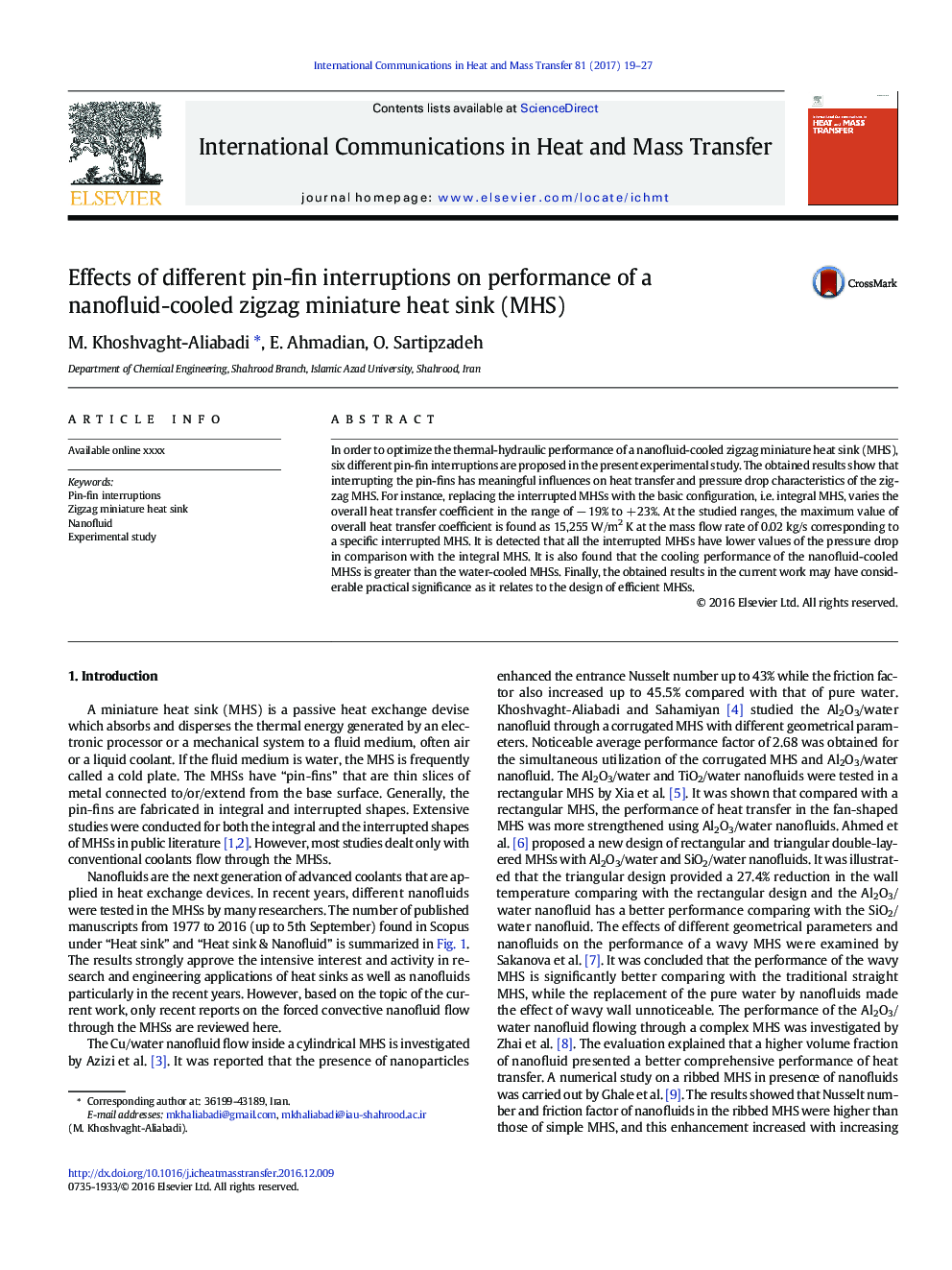| Article ID | Journal | Published Year | Pages | File Type |
|---|---|---|---|---|
| 4992973 | International Communications in Heat and Mass Transfer | 2017 | 9 Pages |
Abstract
In order to optimize the thermal-hydraulic performance of a nanofluid-cooled zigzag miniature heat sink (MHS), six different pin-fin interruptions are proposed in the present experimental study. The obtained results show that interrupting the pin-fins has meaningful influences on heat transfer and pressure drop characteristics of the zigzag MHS. For instance, replacing the interrupted MHSs with the basic configuration, i.e. integral MHS, varies the overall heat transfer coefficient in the range of â 19% to + 23%. At the studied ranges, the maximum value of overall heat transfer coefficient is found as 15,255 W/m2 K at the mass flow rate of 0.02 kg/s corresponding to a specific interrupted MHS. It is detected that all the interrupted MHSs have lower values of the pressure drop in comparison with the integral MHS. It is also found that the cooling performance of the nanofluid-cooled MHSs is greater than the water-cooled MHSs. Finally, the obtained results in the current work may have considerable practical significance as it relates to the design of efficient MHSs.
Keywords
Related Topics
Physical Sciences and Engineering
Chemical Engineering
Fluid Flow and Transfer Processes
Authors
M. Khoshvaght-Aliabadi, E. Ahmadian, O. Sartipzadeh,
